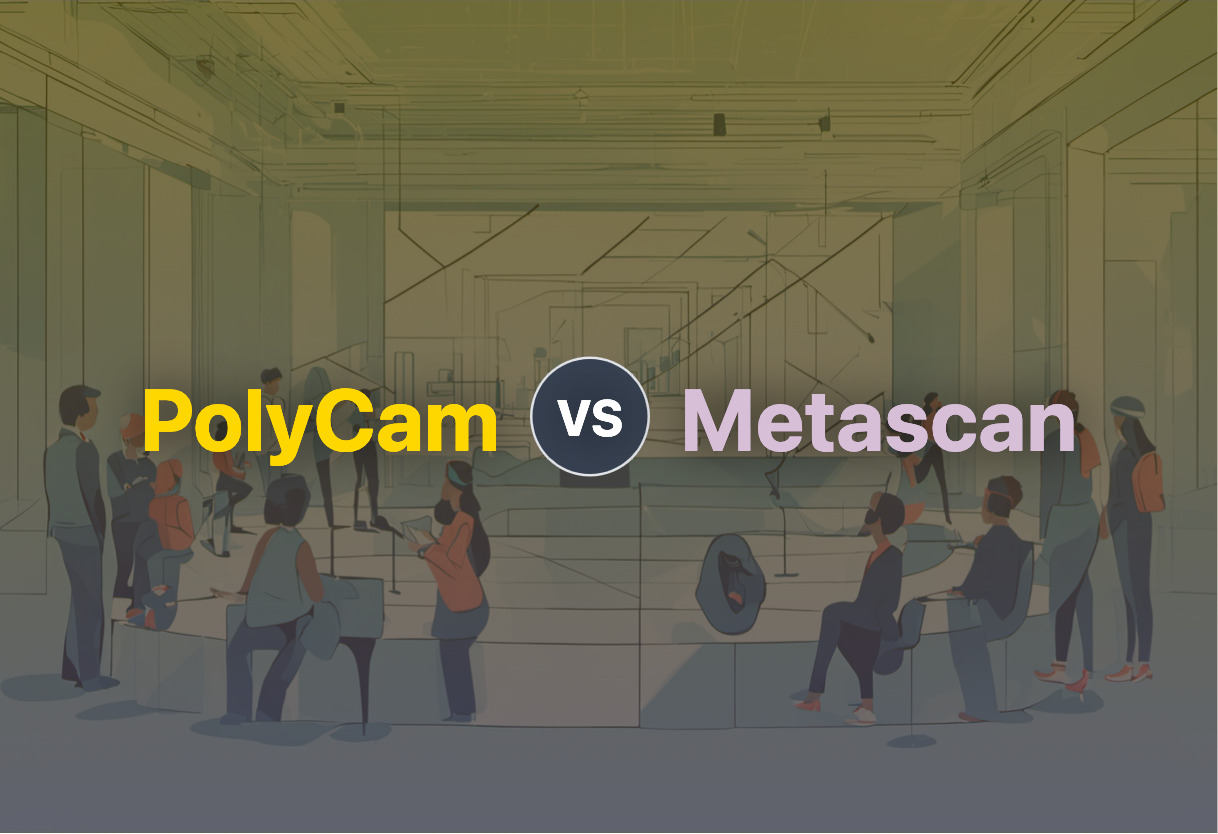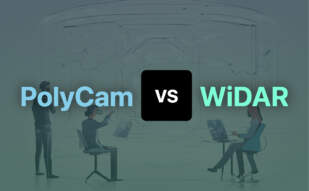Choosing between PolyCam and MetaScan depends on your requirements. For iOS or Android users who prioritize diverse capture modes, 3D printing, and collaborative editing, PolyCam is a superior choice. However, for those deeply concerned with on-device processing and robust antivirus protection, MetaScan should be your go-to option.

Key Differences Between PolyCam and MetaScan
- PolyCam offers a variety of features including 3D capture, photogrammetry, 360-degree panorama capture, while MetaScan emphasizes on-device processing of LiDAR scans.
- PolyCam provides video making features and room mode for creating interactive floor plans; such features are absent in MetaScan.
- PolyCam includes community platform for sharing and exploring models, non-existent in MetaScan.
- MetaScan requires an active internet connection for functioning, while PolyCam operates offline too.
- Both offer professional subscription options, but while PolyCam’s Pro edition enhances export formats and capture options, MetaScan Pro focuses on providing detailed scans, access to all formats, and Web version access.
- MetaScan runs on iOS 15 and beyond with a focus on enhanced malware detection, while PolyCam is available on Android, iOS and the Web.
| Comparison | Polycam | Metascan.ai |
|---|---|---|
| Application Type | 3D scanning app | 3D and LiDAR scanning |
| Availability | Android 8.0+, iOS 15.2+, iPadOS 15.2+ | Any iPhone or iPad from 2015 running iOS15 or above |
| LiDAR Support | Yes | Requires a device with LiDAR scanner |
| Photogrammetry Processing | Adopts Apple’s Object Capture technology | On photogrammetry servers |
| Photo Mode Availability | Unlimited in Pro edition | Yes |
| Premium Subscription | $14.99/month or $79.99/year | Higher detail scans, access all supported file formats, access to Metascan Web |
| Collaborative Features | Sharing, Collaborative Editing | No |
| Interesting Features | 365-degree panorama, 360 Capture system, Room mode | Partnership with OPSWAT for malware detection |
| Required for Use | For LiDAR captures, device with LiDAR sensor | Active internet connection |
| Supported File Formats | Mesh data, Blueprint, Pointcloud data | Mesh: USDZ, OBJ, glTF, FBX, STL |
What Is Polycam and Who’s It For?
Polycam is a state-of-the-art 3D scanning app, developed by Polycam Inc., offering functionalities beyond the ordinary measure. With its offerings, including LiDAR scanning, photogrammetry, and 360-degree panorama capture, Polycam amplifies every aspect of AR visualization. The target audience is vast, involving contractors, interior designers, architects, VFX artists, filmmakers, and 3D artists. It is available on iOS 15.2+, iPadOS 15.2+, and Android 8.0+ platforms.

Pros of Polycam
- Comprehensive 3D scanning and visualization features
- Collaborative editing with sharing features
- Pro edition supports numerous file export formats
- Dedicated features for room modeling and measurements
- Drone mapping support
Cons of Polycam
- High-resolution textures may not display correctly on mobile web browsers
- At $14.99/month or $79.99/year, the Pro edition might not suit all budgets
- Starters need a device with a LiDAR sensor
What Is Metascan.ai and Who’s It For?
Metascan.ai is an advanced app engineered for 3D and LiDAR scanning, supporting any iPhone or iPad from 2015, running on iOS 15 or above. The technology shines amongst those requiring high-precision scanning and modeling, ranging from architectural enthusiasts to professional 3D designers. Uniquely, it doubles as an anti-malware solution, thanks to its partnership with OPSWAT, scanning files using 17 antivirus engines.

Pros of Metascan.ai
- On-device processing in LiDAR mode for greater security
- Metascan Pro offers higher detail scans in multiple formats
- Partnership with OPSWAT for enhanced malware detection
Cons of Metascan.ai
- Requires active internet connection for scanning
- Processing time can be long depending on file size
- LiDAR mode requires a device with a LiDAR scanner
Final Word: Polycam or Metascan?
In the intense world of AR/VR, the question stands—should your choice be Polycam or Metascan?
AR/VR Creators
If you are an AR/VR creator, Polycam’s LiDAR scanning, photogrammetry, and 360-degree panorama capture functionalities would be instrumental for your work. More importantly, you’ll find value in Polycam’s unlimited Photo Mode captures only available on its Pro edition.

3D Artists
3D artists, your choice could lean towards Polycam. Its advanced export formats make the 3D models usable in mainstream software, such as Blender, Cinema 4D, Unity, and Unreal.

Architects and Interior Designers
Architects and interior designers, consider looking into Polycam’s Room Mode feature, which excels in generating floor plans and aiding furniture placement. The measurement tool provides inch-level accuracy for those meticulous implementations.

Cybersecurity Enthusiasts
Cybersecurity enthusiasts, you’d find Metascan a worthwhile tool. With its antivirus capabilities, powered by its partnership with OPSWAT, you’d have peace of mind scanning your files with over 40 anti-virus/anti-malware engines.

Ultimately, Polycam shines for 3D scene creation due to its superior scanning capabilities and AR implementation. However, if secure scanning is a priority, Metascan’s strength in maintaining cyber hygiene could be your pick.
Grant Sullivan
Content writer @ Aircada and self proclaimed board game strategist by day, AI developer by night.





